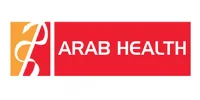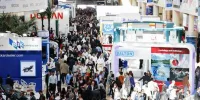Patient safety is a major undertaking and leaders must have missionary zeal to create a culture that is just, said Janice Murphy, Chief Operating Officer, Sheikh Khalifa Medical City in Abu Dhabi, speaking at Arab Health at the 6th Middle East Quality Management Conference. Safety huddles are not the forum to solve global safety issues, she emphasised. They shine a light on what the the challenges are in the next 24 hours, break down silos between departments and build the spirit of cooperation and trust. Janice Murphy, Chief Operating Officer, Sheikh Khalifa Medical City brings a wealth of experience to healthcare in SKMC in Abu Dhabi.
Most errors are from faulty systems and poorly designed processes - not bad caregivers. No blame and a non-punitive response is a leadership choice, she said. Zero tolerance is on only one front - when there is conscious disregard of clear risks to patients.
It is essential to encourage reporting and avoid cumbersome report systems. Murphy cautioned that a punitive approach leads to less disclosure. There should be an open forum to analyse near misses and the will to implement meaningful change based on accurate data. There should be a list of actions and outcome measures, with accountability for who owns the action, an action for each failure mode analysis, and outcomes measures that will analyse and test the redesigned process.
Safety huddles should also share results of wins in patient safety as well as where there is the opportunity to improve. When significant errors occur focus on the process and provide support for the caregivers.
SKMC introduced a safety huddle recently. This is a standing meeting that begins at 8am and lasts for 30 minutes. It includes the senior management council team, nursing supervisors, directors of nursing, care coordinators, facilities and pharmacy staff.
The huddles focus on three main areas:
1. A look back over the last 24 hours to see:
2. A look ahead in the next 24 hours, to anticipate, predict, plan, any procedures/ new equipment/ new beds opening, any recalls or drug shortages that could impact care.
3. Follow up for any unexpected significant events which require follow up.
Murphy emphasised that the huddle is not the forum to solve global safety issues. What it does do is shine a light on what the the challenges are in the next 24 hours. it breaks down silos between departments and builds the spirit of cooperation and trust.
The daily safety event log might include the following:
Most errors are from faulty systems and poorly designed processes - not bad caregivers. No blame and a non-punitive response is a leadership choice, she said. Zero tolerance is on only one front - when there is conscious disregard of clear risks to patients.
It is essential to encourage reporting and avoid cumbersome report systems. Murphy cautioned that a punitive approach leads to less disclosure. There should be an open forum to analyse near misses and the will to implement meaningful change based on accurate data. There should be a list of actions and outcome measures, with accountability for who owns the action, an action for each failure mode analysis, and outcomes measures that will analyse and test the redesigned process.
Safety huddles should also share results of wins in patient safety as well as where there is the opportunity to improve. When significant errors occur focus on the process and provide support for the caregivers.
SKMC introduced a safety huddle recently. This is a standing meeting that begins at 8am and lasts for 30 minutes. It includes the senior management council team, nursing supervisors, directors of nursing, care coordinators, facilities and pharmacy staff.
The huddles focus on three main areas:
1. A look back over the last 24 hours to see:
- any safety issues emerge
- any sentinel event
- any serious medication error/ near miss
- any throughput issues that impacted the patient negatively
- patient and family issues
- staff safety issues
- unanticipated injuries
- environmental concerns
2. A look ahead in the next 24 hours, to anticipate, predict, plan, any procedures/ new equipment/ new beds opening, any recalls or drug shortages that could impact care.
3. Follow up for any unexpected significant events which require follow up.
Murphy emphasised that the huddle is not the forum to solve global safety issues. What it does do is shine a light on what the the challenges are in the next 24 hours. it breaks down silos between departments and builds the spirit of cooperation and trust.
The daily safety event log might include the following:
- medication/ pharmacy issus
- employee safety: trips, falls, exposure, needle sticks, assaults
- maintenance/ equipment
- enironmental/ utility/ chemical
- food service issues
- service line concerns: medicine, surgery, critical care
- any surprises (good or bad)
- Workarounds
- ITD
- social safety issues
- staffing
Latest Articles
Safety, Arab Health 2015, #arabhealth, huddle
Patient safety is a major undertaking and leaders must have missionary zeal to create a culture that is just, said Janice Murphy, Chief Operating Officer,...










